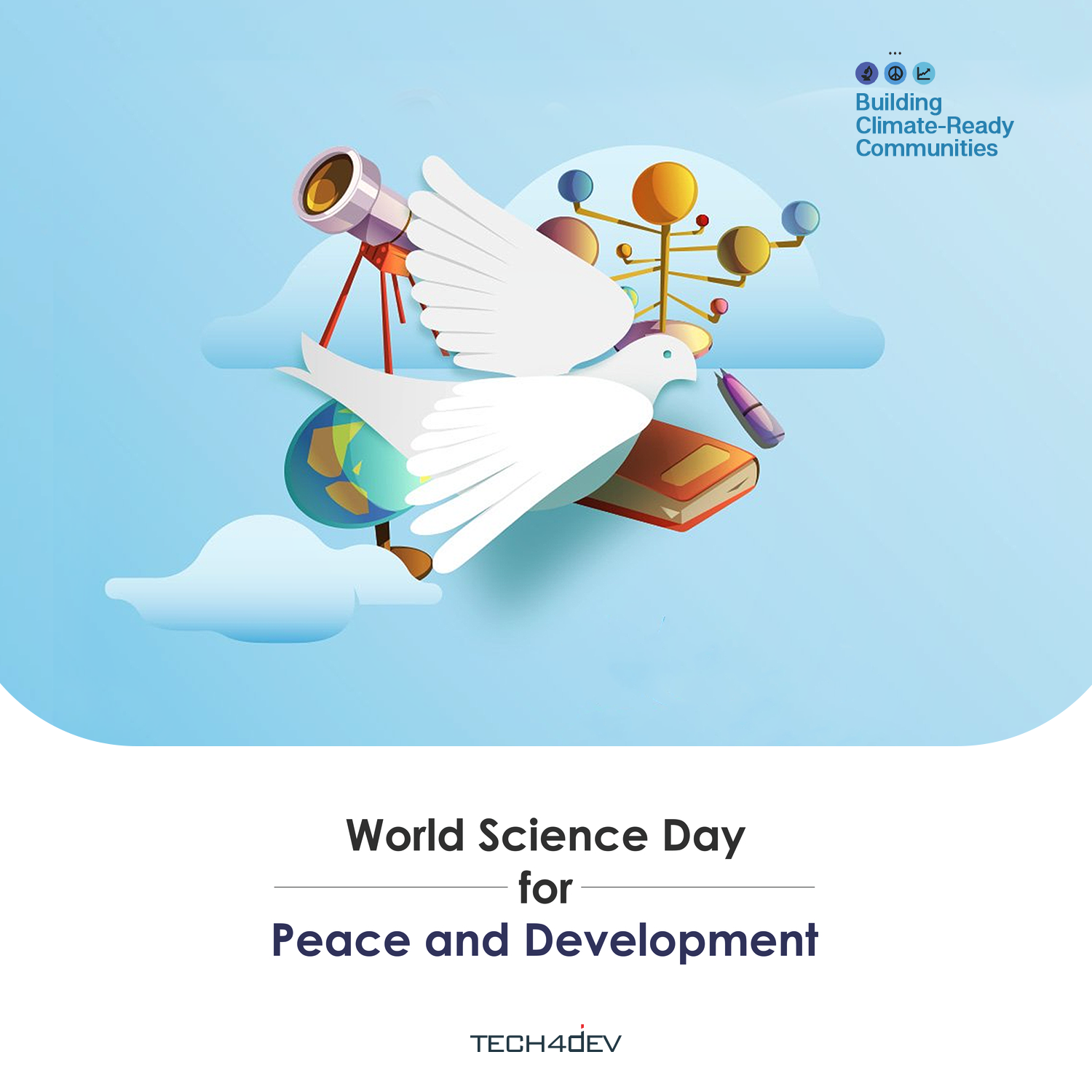 Back
Back
World Science Day for Peace and Development: Building Climate-Ready Communities.
| November 10, 2021

Earth is estimated to be 4.54 billion years old, plus or minus about 50 million years. A planet that old with active living organisms as inhabitants is expected to feel the impact of the activities of its occupants. One of the ways this impact reflects is called Climate change. Climate change is a deviation from the predicted weather condition
According to the World Bank (2018) on Climate Change and Health, Climate change can drastically impact human health. It could see more than 100 million people return to extreme poverty by 2030 unless concerted action is taken.
The above statistics show that Climate Change is a serious concern and one of the most prevalent issues in the world today. There are various causes of Climate Change. However, these causes can be grouped into two: Human causes and Natural causes. Human causes pertain to the consequences of human activities like cutting down trees or forests, environmental pollution, air pollution, etc. In contrast, Natural causes pertain to changes in the earth as a result of its long-termed existence, e.g., the sun’s intensity, the circulation of the ocean and the atmosphere, volcanic activity etc.
Here are some things that we can do to curb the effects of climate change.
Regarding investing in technology research/projects, at Tech4Dev, we understand that technology is a means to many ends, and this understanding strengthens our resolve to equip young people with digital skills. In the first mini–Demo Day of the recently concluded Fellowship training, a group called Outliers under the Data Science and AI learning track worked on an analysis titled Climate Change and Crop Production in developing countries. In this analysis, they used Nigeria, Ghana, Kenya, and South Africa as case studies. As at the time of this presentation, they had just received training for a few months
Another group Royalsters in the recently concluded Women Techsters Bootcamp Cohort 2, under the Product Management learning track, worked on a project that focused on domestically making use of solar energy as a climate change control action. This project focused on reducing excess greenhouse gases in the environment that leads to global warming and climate change, replacing fossils fuel, and creating easy access to clean renewable energy. They achieved this feat after just two weeks of training.
We are convinced that if we keep at it, we will raise minds that would bring about sustainable solutions to the effects of Climate change. The Third Cohort of the Women Techsters Bootcamp commences today, and we already look forward to the solutions they will be creating in a few weeks from today.